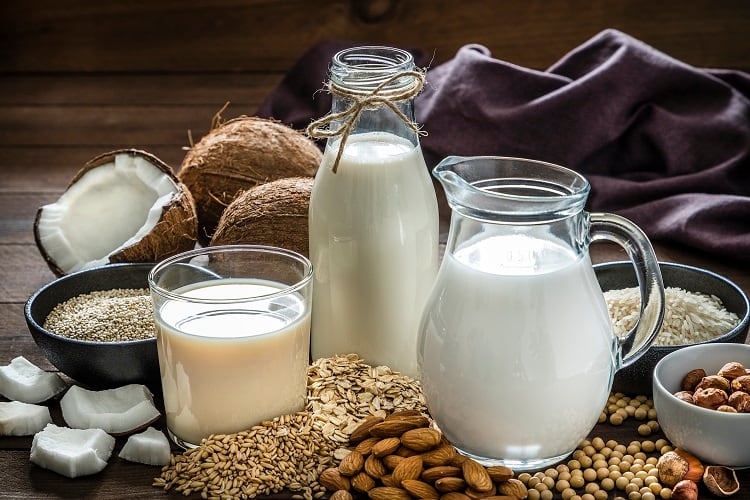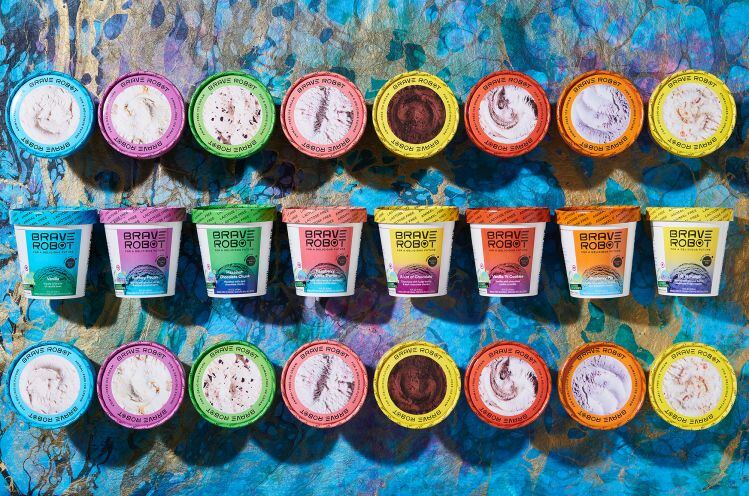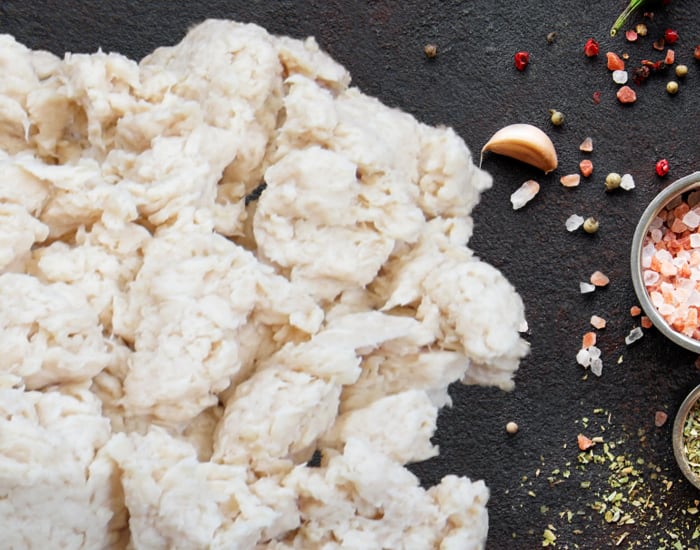Within the booming plant-based sector, animal-free dairy has proved one of the most successful categories.
Consumers are increasingly concerned about animal rights, the environmental impact of milk production, and lactose intolerance. This has led to a spike in demand for dairy alternatives based on soy, oats, peas, and nuts, amongst other plant-based ingredients.
In 2019, the global plant-based dairy sector was valued at $16.1bn, according to data from Grand View Research. By 2025, the sector is expected to be worth $41bn.
However, plant-based dairy is yet to reach its full potential. Due to a ‘lack of texture’, current products on the market ‘fail to appeal’ to many flexitarians, according to materials engineer Tomas Turner.
“Many people have grown up with dairy. They know it, they like it, and they don’t want to switch.”
Together with mechanical engineer Dimitri Zogg, Turner is developing a solution to add ‘creaminess and texture’ to plant-based dairy.
Developing a fat ingredient for plant-based
The duo has established a start-up in the Netherlands, Cultivated Biosciences, that leverages fermentation to develop a fat ingredient from oleaginous yeast. These species of yeast naturally produce large amounts of non-GMO fats.
To produce the fat ingredient, the entrepreneurs feed the yeast with agricultural side-streams. Specifically, the duo is planning to use molasses, a side-stream of the sugar-making process. “However, there are a lot of other side streams that we are planning to use,” the CEO revealed. “They make for a good fit within the circular economy.”
Once fed, the yeast multiplies and produces fat within their cells. The start-up collects the entire biomass, before ‘breaking’ the cells to harvest ‘their creamy side’, we were told. “We have a special extraction process that allows us to access this cream.”
The leftover protein fraction can then be leveraged for other uses. “It’s another value stream,” explained Turner.
While the CEO could not confirm with certainty that a pasteurization process will be required following harvest, just as is required in dairy, he did say it is ‘very probable’.
The end result is a ‘high fat cream’ alternative that can be used in a ‘very similar way’ to that of its conventional counterpart. “It is a functional ingredient, so it can act as an emulsifier and it adds texture.”
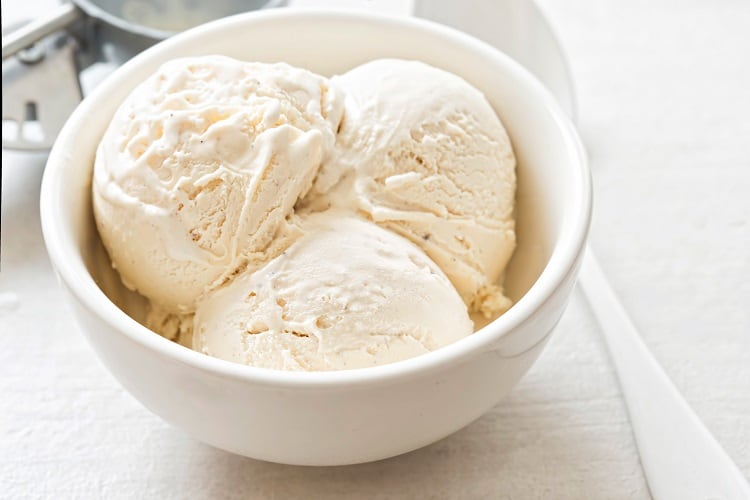
From a nutrition perspective, Cultivated Biosciences’ ingredient has some health benefits, the CEO continued. “With have no cholesterol in our fats, and we can work and tune the saturated level depending on the product. So in some products, we will be able to have a lower saturated level compared to animal-based dairy, as well as coconut and palm oil alternatives.”
Other advantages lie in the product’s sustainability credentials. An early estimate of a one-to-one comparison with conventional cream suggested Cultivated Bioscience’s alternative produced 70-80 times fewer CO₂ emissions. The start-up’s ingredient also has a lower water footprint.
Commercialisation strategy
The technology, the CEO told this publication, is ‘easily scalable’. “One of our strengths is that our machinery is not too complicated. We can reuse different machines and equipment from existing yeast production…so our plan is to work with existing industries to lower our capital costs.”
The start-up predicts its fat ingredient to enter the B2B market around the end of 2024. At this time, products containing the ingredient are likely to be sold at a premium. High-end ice cream could be an appropriate category, the CEO explained, for which consumers are already willing to pay extra to have something that is ‘even more delicious’.
Around 6-7 years from now, however, when the start-up has access to larger facilities and can produce ‘several thousands of tonnes’, Turner estimates it will be able to achieve price parity without subsidies.
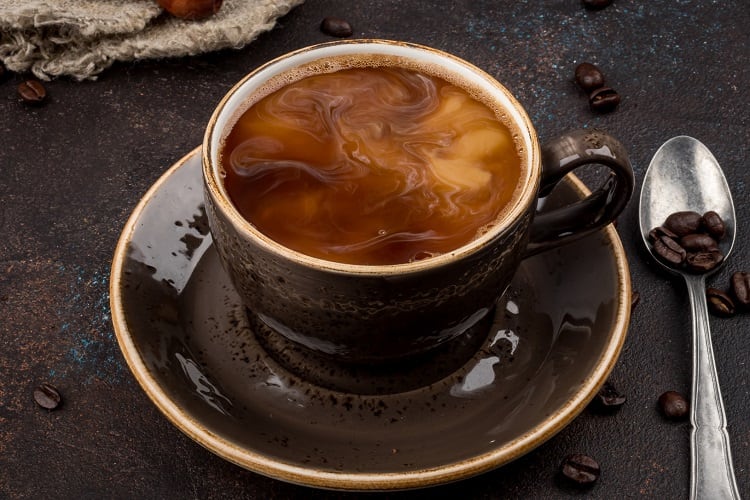
Cultivated Biosciences is targeting the B2B plant-based dairy market, and particularly businesses looking to expand their consumer base. From ice cream to confectionery, cheese, and coffee creamers, the start-up sees potential in a wide variety of plant-based categories.
The start-up would like to first enter the market with co-development and co-branding projects, in a similar vein to Perfect Day and Brave Robot’s collaboration in the US. “This is a very good example of people who have spearheaded this industry. Our goal is to have something very similar.”
Once Cultivated Biosciences reaches full scale, it can begin to focus more heavily on disrupting the milk, as well as the milk ingredient, market.

The start-up is currently investigating whether certain oleaginous yeast strains are known to be used in food, but CEO Turner suggested it is ‘very probable’ its fat ingredient will be classified as a novel food.
This is why Cultivated Biosciences is likely to commercialise, at least at the ‘very beginning, elsewhere. Regions such as the US and Singapore are considered easier in terms of receiving regulatory approval for innovative food products, he explained.
The ‘most dynamic’ regulations are in these geographies, the CEO continued. Precision fermentation dairy proteins are currently being commercialised in the US, as is a cell-based chicken ingredient in Singapore. “Unfortunately, in Europe it’s not that easy.”
Cultivated Biosciences has been accepted into the eighth cohort of the ProVeg Incubator, which focuses on emerging food technologies and ingredients for the alternative protein space.
“We’re enjoying working alongside fellow start-ups – those who work in CPG and others that are more tech-heavy. We can compare our timelines and help push each other along,” said Cultivated Biosciences co-founder and CEO Tomas Turner.


